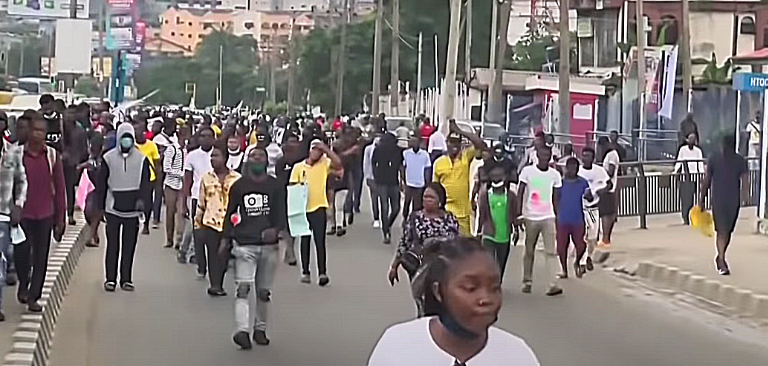The Nigerian government is considering cutting the country’s access to the internet. This comes amid the anti-brutality protests happening across the country. Shutting down the internet at such a juncture will be used as a tactic to try and suppress dissent, local media is reporting.
With Nigerians not backing down on protesting for the reform and disbandment of the Special Anti-Robbery Squad (SARS) of the police force, there is growing speculation that the government might shut down the internet, a common tactic that is growing in several countries.
Nigeria’s SARS was founded in the year 1992 and has been established to counter violent crimes in the country. The citizens of Nigeria, however, accuse the department of abusing power and overstepping its authority. Last week, graphic footage that featured the SARS team members sparked public outrage in the country. The hashtag “#END SARS” was trending across social media platforms.
After a nation-wide protest to dissolve the unit, the government finally agreed and ended up officially disbanding SARS on October 11. But Nigerians weren’t pacified yet. They started extending the protests and questioning the government about the past promises and reforms that were declared, but not acted upon.
During these nation-wide protests, people have supported each other and bolstered their efforts by means of digital payment platforms. This may also be a strong reason why the government could want to bring down the internet. Doing so would obviously remove the scope for online money transfer, which could hinder protests.
Be it to crush dissent against the state authorities or thwart the nation-wide protests by disabling online money transfers, the probable internet ban in the country is going to hamper free speech across the nation.
It hasn’t been the first time internet bans are being used for controlling anti-government movements and protests. Countries such as South Sudan, Zimbabwe, and Belarus have also had an internet shutdown in response to civil disturbances and protests against the government, and Thailand is currently using a similar tactic – while not cutting off the internet completely, they are censoring select websites and media outlets.






















